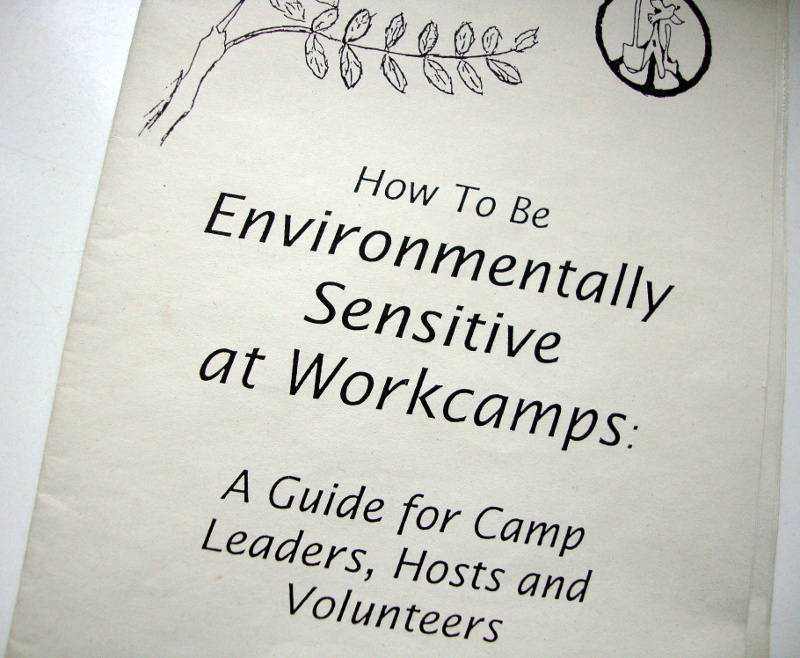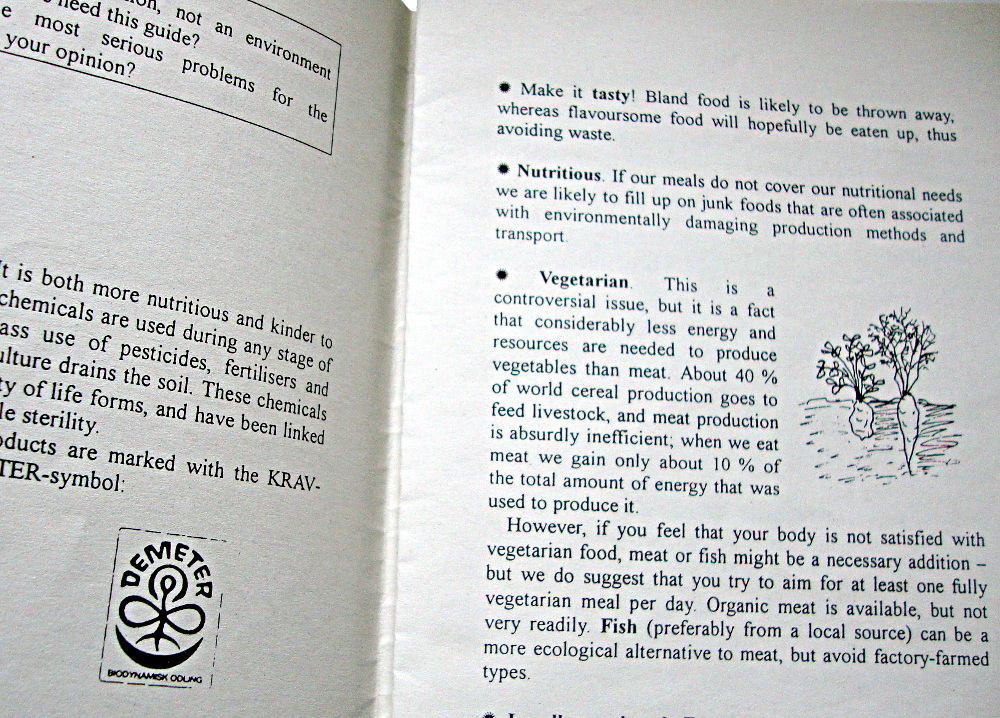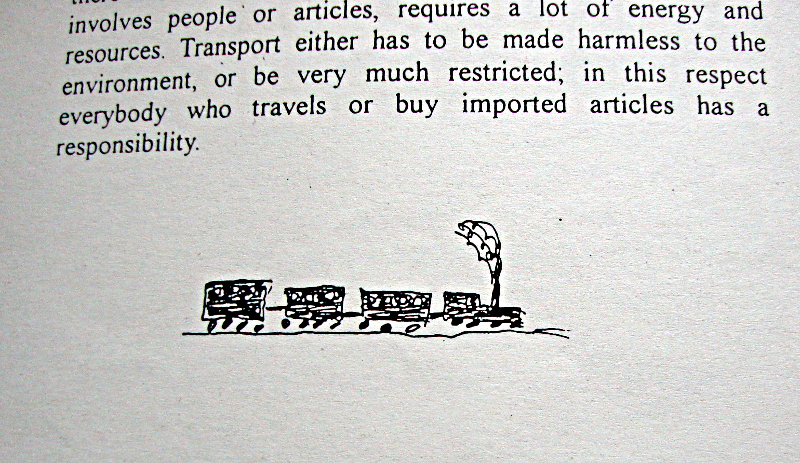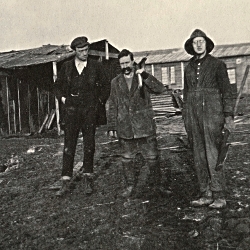Service Civil International
How to be environmentally sensitive at workcamps, brochure, ca. 2001
by H. Gabathuler (Apr 22, 2017)
 This Guide for Camp Leaders, Hosts and Volunteers has been an indirect result of a seminar that took place in Stockholm in 1998 with participants from SCI branches and partners located around the Baltic Sea. It was subsequently produced by the Swedish branch IAL in co-operation with the Finnish branch KVT to try to raise the awareness of environmental issues and concerns that may arise during workcamps.
This Guide for Camp Leaders, Hosts and Volunteers has been an indirect result of a seminar that took place in Stockholm in 1998 with participants from SCI branches and partners located around the Baltic Sea. It was subsequently produced by the Swedish branch IAL in co-operation with the Finnish branch KVT to try to raise the awareness of environmental issues and concerns that may arise during workcamps.
 Whereas SCI had organised workcamps devoted to nature protection, ecological farming or campaigning for environmental issues for a few decades already, there was (and is) clearly a lack of internationally agreed strategy for dealing with environmental issues in SCI’s own activities, such as seminars and workcamps. SCI is proud to organise seminars on global ecological topics such as climate change, at the same time it has become more and more normal for volunteers to travel by plane to a workcamp or seminar taking place a few hundred kilometres from home. This was quite different when I started to attend workcamps in the 1980s – even a volunteer from Turkey would travel two days by train to reach a workcamp in Western Europe, as plane tickets in that time were simply too expensive. Growing awareness of environmental issues easily gets along with travel habits that seem to be far less environmental friendly than a generation ago.
Whereas SCI had organised workcamps devoted to nature protection, ecological farming or campaigning for environmental issues for a few decades already, there was (and is) clearly a lack of internationally agreed strategy for dealing with environmental issues in SCI’s own activities, such as seminars and workcamps. SCI is proud to organise seminars on global ecological topics such as climate change, at the same time it has become more and more normal for volunteers to travel by plane to a workcamp or seminar taking place a few hundred kilometres from home. This was quite different when I started to attend workcamps in the 1980s – even a volunteer from Turkey would travel two days by train to reach a workcamp in Western Europe, as plane tickets in that time were simply too expensive. Growing awareness of environmental issues easily gets along with travel habits that seem to be far less environmental friendly than a generation ago.
This guide, less than 20 years old, seems to fill the above-mentioned gap between the ecological aims of SCI and the need for practical ecological behaviour in workcamps, but at the same time does not only look terribly old-fashioned in style and design but also seems to give pretty radical advice to volunteers: Try to avoid flying if possible (p. 12, under the drawing of a – in fact not so environmentally friendly - steam train). Avoid single-use articles (p. 16). Cheaper than buying ecological clothes is going to second-hand shops (p. 19). Avoid long showers – aim for less than 5 minutes (p. 20). It is even recommended to boycott certain multinational companies with poor environmental and ethical records (p. 6) and to buy fresh and locally produced food instead. Some of the recommendations, such as considering to consume less meat, or separate waste like glass, plastic, and paper, appear less utopian, however, from today’s perspective.

We don’t know to which extent the recommendations had been followed at least in the Swedish and Finnish camps at the beginning of the century. It may have depended a lot from the commitment of camp leaders who – as I can confirm from my own experience – have some influence on where and what kind of food is being bought during the camp, and what attitude towards waste and recycling prevails. And it would be interesting to know whether the brochure provoked discussions among workcamp participants. Nowadays an app for smartphones would definitely trigger more attention than this simple overload of verbal advice how to create a better world. But it would definitely be worth to continue the effort of environmental education within workcamps!
Â
Heinz Gabathuler, International Archives Coordinator
Â
Reference:
In the International Archives, the brocure is filed under 11116.15.



